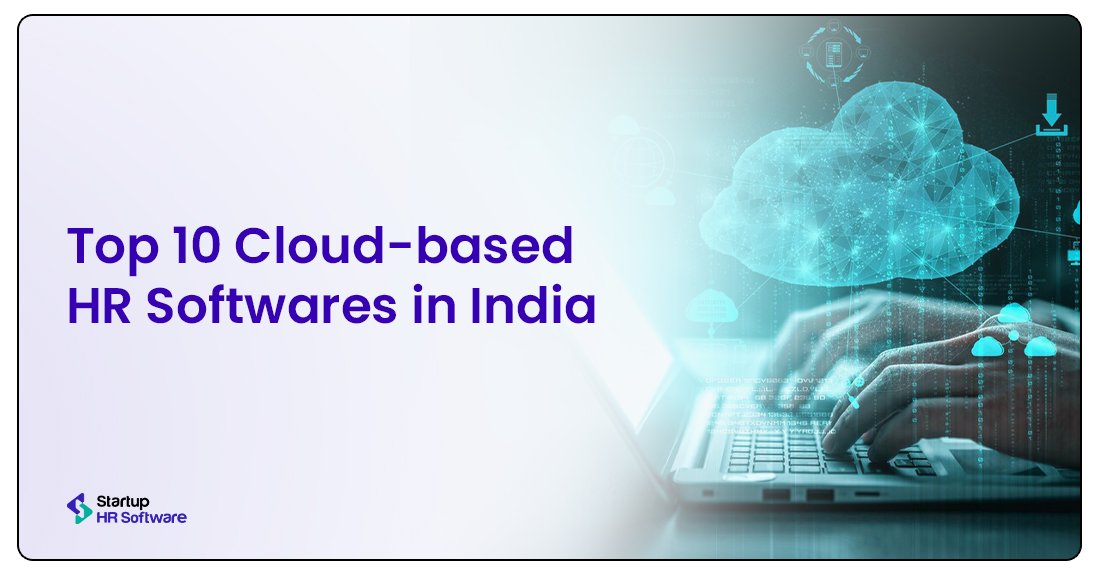Implementing Cloud-based HR software in your organization has become the need of the hour, whether you are an SME or a large MNC. Today’s world is driven by Artificial Intelligence and with such a rapidly evolving technology, coping with HR functions through traditional ways is nearly impossible. Imagine spending uncountable hours and days managing employee data through registers or calculating tax & disbursing salaries individually for every employee. It consumes precious time and increases employee demotivation, disengagement, and dissatisfaction with their work. In severe cases, it might create disputes leading to legal issues. Here is when Cloud-based HR software comes to the rescue by handling all such operations online on your behalf. Now, deep dive into the blog, where we have discussed the core meaning of cloud-based HR software, its benefits, features, roles, and much more.
What is cloud-based HR software?
Cloud-based HR software is a web-based tool that streamlines and automates different HR functions. With the help of the best HRMS software in India, employees can access all the HR-related data in one single and secured platform. In the manual handling of HR operations, organizations suffered losses due to storing, managing, and accessing HR data from Excel sheets, spreadsheets, or registers. The cloud-based human resources software solves such a problem. It is hosted on remote servers, allowing users to access HR data online, irrespective of location and time zones.
Benefits of Cloud-based HR systems
Here are the top benefits of implementing a cloud-based HRMS in your current business:
- Time-Saving: Manually handling HR operations consumes much time for HR professionals. It is so because you need to note down everything manually, such as employee working hours, payroll calculations, etc. Moreover, employee queries regarding their data retrieval or other personal data have to be addressed & corrected by the HR professionals manually, which consumes enormous time. With the coming of an HRMS, HR experts can entirely focus on key strategic areas such as designing compensation strategies, succession planning, etc. All the basic employee queries are managed through the automated HR software, saving time wasted on regular follow-ups.
- Minimizing Paperwork: A lot of paperwork was involved in traditional-based HR systems. Everything requires papers to conduct such HR operations, whether taking employee attendance, tracking working hours, or calculating salaries. Imagine a situation where you are asked to find an employee’s attendance record after six months; you must dig into numerous registers to find the exact record. In severe cases of such manual registers getting lost, stolen, or destroyed, you will never be able to see the correct record. Such problems are solved by automated HRMS that minimize the need for paperwork by storing everything on a server.
- Enhancing Productivity and Engagement: Huge employee disengagement and deteriorating productivity were noticed in the companies working on manual-based HR operations. They had to wait for hours and even days to get their queries acknowledged and solved. Such issues are addressed and solved by the best HRMS software in India. Most of this software has an intuitive user interface accessible over the mobile phone. It helps employees to make the necessary changes to their profile, and apply or check the leave request status on the go with zero need to follow up with the HR team. It leads to higher productivity among employees with full engagement towards the work.
- Predictive Analysis: While handling HR functions manually, the biggest drawback was being unable to retrieve different types of reports and predict the future based on artificial intelligence. By implementing an HRMS in your company, you can use Artificial intelligence, Deep learning, Big Data Analytics, Data science, etc. It does the necessary forecast regarding the HR future, finds loopholes in the existing HR system, employee dissatisfaction, demotivated behavior, and actions that need to be taken to overcome them. Regular analysis and timely correction of the issue increase employee retention, decrease the attrition rate, and forecast the number of candidates that need to be employed to manage future risks.
- Unleashing Organizational Potential: Once the entire HR process gets streamlined, simplified, and automated through the cloud-based HRMS, the organization can find its true potential. Such potential can be explored by focusing on the company’s critical areas. Such a benefit was missing in manual HR operations because the entire time went on performing the time-consuming, repetitive HR tasks. Due to this, the existing loopholes in the company remained unidentified. With the help of cloud-based software, companies can identify areas of improvement and make data-driven decisions based on the latest HR trends. As a result, employee satisfaction, retention rate, and productivity will be enhanced.
Feature of cloud-based software
Here are the top-notch features of Cloud-based HR software:
- Employee Self-Service Portal: The employee self-service (ESS) portal provides instant access to authorized employees for viewing, accessing, and modifying their HR-related data. Such data included generating paystubs, viewing leave balances, upcoming holidays, personal data, etc. The cloud-based portal required login credentials to be accessed over mobile phones, laptops, computers, tablets, etc.
- Core HR Functionality: Cloud-based HR software handles all the core HR functions such as recruitment, statutory compliance, talent acquisition, payroll management, etc. Handling all such core HR operations manually leads to employee disengagement and demotivation. Therefore, HRIMS ensures employee retention by automating all the operations. It saves enormous time for HR professionals and can be further emphasized in a critical business area.
- Performance Management: Managing employee performances manually over registers or spreadsheets could be more ineffective, inaccurate, and time-consuming. Imagine checking bundles of registers to retrieve the performance-related data for every employee. It increases the chances of biased & error-prone calculation of incentives, bonuses, or benefits for every employee, leading to dissatisfaction. With a cloud HRMS, you can track employee performance on a real-time basis that’s just a filter away even if years pass by. You can conduct coaching, value-added training, and regular employee feedback sessions based on the record.
- Time and Attendance Tracking: Traditional ways of handling HR data give HR professionals a hard time maintaining accurate employee attendance. It led to irresponsible activities such as buddy punching, longer lunch breaks, and wrong in & out timings. HRIS aids the HR experts by automating the entire time & attendance management system. It gives employers real-time data on employee attendance, total working hours, clock-in & clock-out timings, irregular absences, break timings, etc.
- Recruitment and Onboarding: What’s more convenient than automating the entire recruitment and onboarding process through a single platform? Yes, you heard it right; such a feature is possible only because of the Human resource management system. It integrates the internal websites and the official job portals where the entire process, from candidate application, interview scheduling, hiring, onboarding, and training to final see-off, is streamlined.
- Training and Development: Once you have an onboarded employee, you must take care of their training and further learning & development (L&D) programs. This entire process was a big chaos while manually handling HR operations. Thanks to the automated cloud-based HR system that conducts various surveys for accessing loopholes and employee satisfaction levels. According to this data, it provides suggestions for conducting relevant training sessions to keep employees up-to-date. It can happen through appropriate courses, compliance training, mock sessions, etc.
- Payroll Processing: The Human resource management system allows error-free payroll processing, such as generating payslips, salary disbursement, tax calculation, etc. Such software collects, stores, and processes all employee data, such as tax liabilities, pay rates, benefits, etc., at a central location. It uses this data to calculate the gross pay for every employee instantly. Moreover, it lets employees view the entire year-end record of tax deductions.
- Integration Capabilities: HRIS comes with top-notch features for integrating the HR tool with various other applications on its system through application-performing interfaces (APIs). Some are attendance management systems, performance management, payroll management, etc. It helps synchronize data and smooth data movement from one application to another.
- Data Security and Privacy Measures: Data safety was a significant obstacle in the manual processing of HR data. HRMS solves this problem by having a multi-factor authentication mechanism, encrypted data, and 100% authorized data access in compliance with data security standards. It also saves HR data from third-party attacks.
Exploring the Role of Cloud Computing in HR Management Systems
Cloud computing plays a vital role in managing day-to-day HR operations. With the help of cloud computing, human resources can be managed 50x more effectively. It automates the entire HR functions minimizing the need for time-consuming administrative tasks. Moreover, Cloud-based HR systems are 100% effective in offering cost-effective solutions and scaling your existing business. Such a concept of cloud computing has remote data centers that provide smooth access to data to all authorized people. Implementing cloud computing in the HRMS also ensures smooth collaboration and integration of tools such as attendance management, benefits administration, payroll management, etc. The best part is that your confidential HR data remains 100% secure as cloud-based software has a multi-authentication process, firewall, and end-to-end data encryption.
Moreover, in case of data losses due to deletion or system failure, it offers automatic recovery through its data backup features. Cloud computing also plays a crucial role in HRMS by helping organizations make data-driven decisions. is possible through AI-based HR analytics, reporting, and meaningful insights on employee performance, engagement, and satisfaction levels.
How can cloud-based HR software help small and medium-sized businesses
Here is how the Cloud-based HR software assists in aiding the progress of small and medium-sized businesses (SMBs):
Cost Savings: A considerable amount of money is wasted on hiring multiple people to handle employee queries and record their data manually. Instead of paying salaries to multiple HR admins, SMBs can implement automated HR systems in their organization, which saves the company enormous costs.
Accessibility and Flexibility: India’s best Human resource software provides flexibility and easy access to HR data from any location. It also has a mobile on-the-go application to make it more accessible and handy. Therefore, whether you work remotely or from a different country, you and other team members can be on the same page through this cloud-based portal.
Scalability: Whenever SMBs think of increasing their employee size, manually handling HR functions will not work in the long run. Suppose you wish to extend your current business. In that case, you need a solid automated HR system, as it’s nearly impossible for a human being to enter each employee’s data manually.
Automation of HR Tasks: Cloud-based HRMS helps SMBs automate their HR tasks, such as recruitment, onboarding, hiring, and training, to full and final settlement. As a small to medium-sized business, the primary focus should be business growth and becoming a large enterprise. This is possible by focusing on critical strategic areas rather than wasting time jumping from one HR task to another.
Enhanced Security: SMBs often cut costs for the company by compromising on taking proper security measures to protect employees’ data. However, they don’t have to worry about security after implementing HRIS in their existing system. It shields confidential employee data and saves them from third-party attacks through its multi-level authorization procedures.
Analytics and Insights: HRIS uses people analytics to offer actionable insights on employee data, such as employee issues, expectations, etc. SMBs can take full advantage of these insights to make data-driven decisions that are helpful for their company growth.
Top 10 cloud based hr software in india
Cloud human resources (HR) software is increasing in popularity and for good reason. It allows you and your HR team to access and manage employee data from anywhere at any time. With the power of cloud computing, you can streamline your HR processes and improve efficiency. With so many options available, it can be difficult to choose the best software. In this article, look at some of the best cloud HR software options available.

Zoho Corporation
Offers comprehensive HR management features including attendance management, leave management, performance appraisal, and more. It integrates with other Zoho applications for seamless operation.
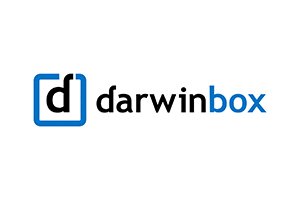
Darwinbox
A modern HRMS that includes modules for employee lifecycle management, payroll, performance management, and recruitment. It focuses on providing a user-friendly experience and robust analytics.
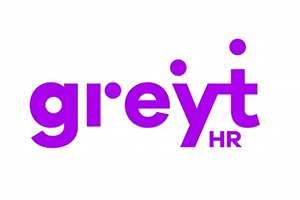
GreytHR
Known for its payroll management capabilities, greytHR also offers features like attendance tracking, leave management, and employee self-service. It caters primarily to small and medium-sized enterprises.
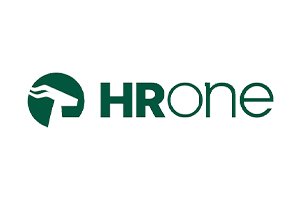
HROne
Provides a cloud-based HR and payroll management solution with modules for attendance, leave, payroll processing, and employee self-service. It is designed for ease of use and scalability.
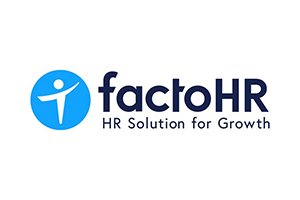
FactoHR
Offers HRMS features such as payroll management, attendance tracking, employee self-service, and performance management. It focuses on automation and compliance.
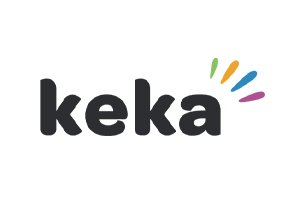
Keka
Provides HR automation features including payroll management, attendance tracking, performance management, and employee engagement tools. It targets both SMEs and large enterprises.
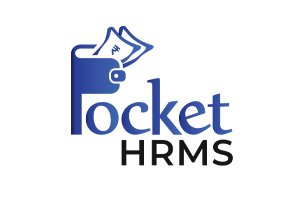
Pocket HRMS
A cloud-based HRMS with modules for payroll management, leave management, attendance tracking, and employee self-service. It emphasizes ease of use and integration.
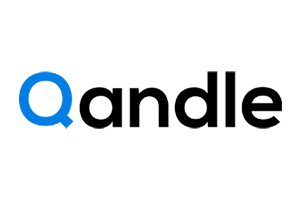
Qandle
Offers HRMS and payroll software with features such as leave management, attendance tracking, performance management, and onboarding. It focuses on customization and employee engagement.
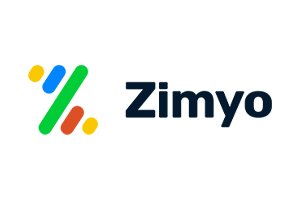
Zimyo
Provides a comprehensive HRMS with modules for payroll management, attendance tracking, leave management, and employee self-service. It is designed for flexibility and ease of use.
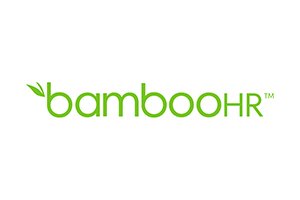
BambooHR
A popular HR software known for its intuitive interface and comprehensive HR management features. It includes modules for applicant tracking, onboarding, performance management, and employee database management.
How to choose the best cloud-based HR software in India?
Choosing the best cloud-based HR software in India needs time and effort in conducting in-depth research. One wrong decision can lead to a business’s downfall; therefore, selecting cloud-based HRMs that meet your business requirements is essential. It would help if you considered several parameters before finalizing the list of top-notch HRMS software in India. Some of the most crucial parameters are as follows:
Integration: Check whether the software company provides the necessary integrations, such as payroll and attendance management.
Budget: Discuss your budget with the HR software company’s HR expert. However, we recommend you think outside your budget to explore the latest trends.
Benefits & Features: Mention every benefit & feature you are looking for in the HRMS. Some of the features that should be there in the cloud-based software are mentioned below:
- Reporting and data analytics
- Manager self-service
- Collaborative interfaces
- Employee self-service
- Process automation
- Access via mobile/personal devices
Scalable: Businesses continually evolve, so ensure your HRMS has scalability tools. This way, whenever you wish to add more features or modify the existing ones, you can do so easily.
Customer Support: ‘Good customer support is all we need.’ Read enough reviews online before finalizing the human resource software. You will need plenty of customer support, so they should provide after-sales service.
Stats and insights of cloud based software 2024
Cloud-based software has become increasingly popular due to its scalability, flexibility, and cost-effectiveness. Here are some key stats and insights backed by research:
Adoption Rate and Growth:
-
- According to a report by Gartner, the worldwide public cloud services market is projected to grow 17.5% in 2023 to total $469 billion, up from $399 billion in 2022.
Benefits of Cloud Software:
-
- Flexibility: Cloud-based software allows businesses to scale resources up or down as needed, offering flexibility in operations.
- Cost Savings: Organizations can save on infrastructure costs by leveraging pay-as-you-go pricing models.
- Accessibility: Cloud software enables remote access, enhancing collaboration and productivity.
Industry Adoption:
-
- Various industries, including healthcare, finance, education, and manufacturing, are increasingly adopting cloud-based solutions to streamline operations and improve efficiency.
Security and Compliance:
-
- As per Microsoft Azure Cloud providers invest heavily in security measures, often providing more robust security than many organizations can afford on-premises.
- Compliance with regulations such as GDPR and HIPAA is also facilitated by cloud providers.
Challenges and Considerations:
-
- Potential challenges include data security concerns, regulatory compliance, and vendor lock-in risks.
- Organizations should carefully assess their needs and select appropriate providers and solutions.
Conclusion
Every company is switching to cloud-based HRMS knowing the potential features and benefits it provides in the long run. There is an extensive list of HRMS software in India, but finding the top cloud-based HRMS is challenging. We hope that this blog simplifies your problem for making an informed decision. The best HRMS software in India suits your unique business requirements and can scale with the change in employee size and integrate with other platforms. All such benefits are covered under the HR software packages provided by Startup HR Software company. We have handpicked cloud-based HRMs in India for small, mid-level, and larger enterprises. Our human resources team attentively listens to your needs and offers the most relevant HR software solutions. These solutions are entirely personalized and structured as per the business requirements. Get a detailed explanation by attending the ‘FREE OF COST’ Demo and Consultation Session by our HR management experts.
F.A.Q
Which HR software is best?
Here are some popular and highly regarded HR software in india options that are frequently mentioned:
- Zoho People
- Keka
- GreytHR
- Pocket HRMS
- BambooHR
What is SaaS HR software?
SaaS HR software is a cloud-based solution that streamlines HR tasks. It centralizes employee data, automates processes, and provides self-service options. This software aids in compliance, offers insights into organizational metrics, and supports various HR functions like recruitment, payroll, etc.
What are the key advantages of using cloud-based HR software over traditional solutions?
- Cloud-based HR software offers advantages such as scalability, cost-effectiveness (especially in terms of infrastructure), ease of access from anywhere, and automatic updates without requiring IT intervention.
How secure is cloud-based HR software, especially in terms of handling sensitive employee data?
- Cloud-based HR software providers typically adhere to strict security standards, including data encryption, regular security audits, and compliance with data protection regulations like GDPR and India’s IT Act. It’s essential to choose a provider with a strong track record in data security.
How can cloud-based HR software help in managing a diverse workforce across different locations in India?
- Cloud-based HR software facilitates centralized data management, enabling HR teams to streamline communication, manage payroll across different states with varying regulations, and ensure consistent policy implementation across the organization.
What customization options are available with cloud-based HR software to meet specific organizational needs?
- Most cloud HR solutions offer customization options such as configurable workflows, role-based access controls, customizable reports and dashboards, and integrations with other business systems (like accounting or CRM software).
How does cloud-based HR software assist in compliance with Indian labor laws and regulations?
- Leading cloud HR software providers often include features that help automate compliance tasks, such as generating statutory reports, managing leave policies in accordance with local laws, and staying updated with regulatory changes through automated alerts.
Can cloud-based HR software integrate with existing software systems used by our organization?
- Yes, cloud-based HR software typically offers integration capabilities through APIs (Application Programming Interfaces), allowing seamless connectivity with existing ERP, finance, and productivity tools used by your organization.
How does cloud-based HR software handle employee self-service functionalities, and how can it improve employee engagement?
- Cloud-based HR software often includes employee self-service portals where employees can manage their profiles, submit leave requests, access pay slips, and participate in performance reviews. These functionalities improve transparency, efficiency, and ultimately contribute to higher employee engagement.
What are the scalability options with cloud-based HR software as our organization grows?
- Cloud HR software is highly scalable, allowing organizations to easily add or reduce user licenses, expand functionalities (such as adding modules for recruitment or performance management), and accommodate growth without significant IT infrastructure changes.
How does cloud-based HR software help in fostering a culture of continuous feedback and improvement within the organization?
- Cloud-based HR software often includes performance management modules that facilitate ongoing feedback, goal setting, and development planning. Features like 360-degree feedback, real-time performance analytics, and skill assessment tools support continuous improvement initiatives.
What are cloud-based HR systems?
- Cloud-based HR systems are software applications hosted on remote servers and accessed via the internet. They offer accessibility from anywhere, scalability to adapt to business needs, cost-effectiveness with no upfront hardware costs, robust security measures, integration with other business systems, and features like employee self-service and analytics for better decision-making. They streamline HR operations and are ideal for organizations of all sizes looking to modernize their HR management.
